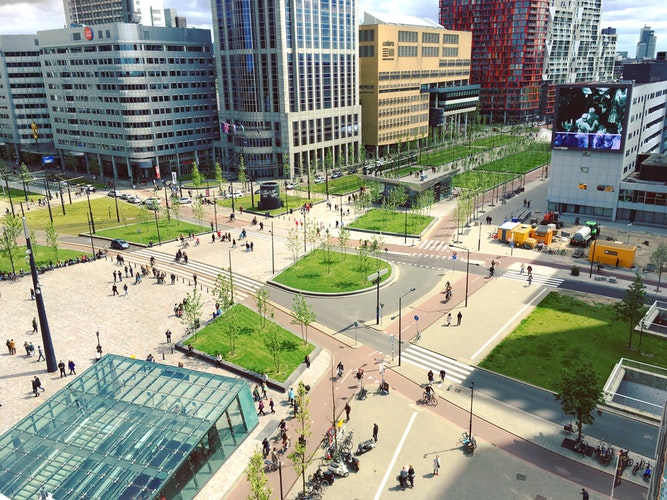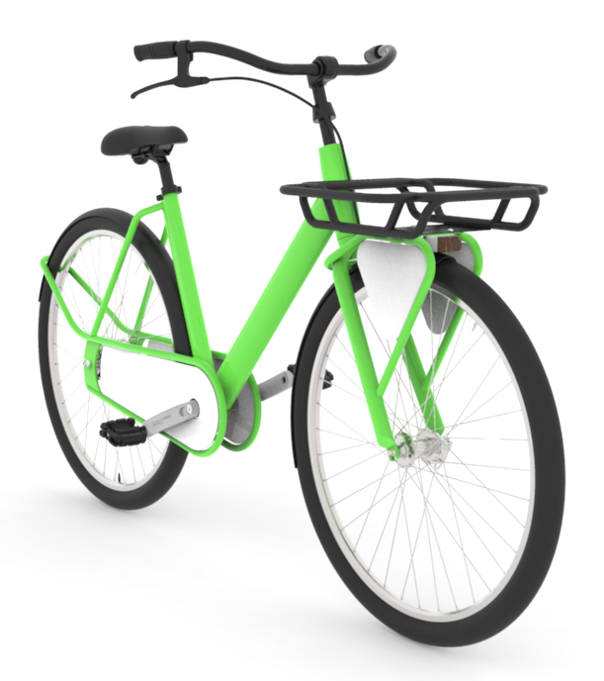
Smarter Cycling Series: Self-Recharging e-bikes - the next Frontier of Shared Mobility
As part of our work to help cycling and the bike industry into the world of smart, connected and shared mobility we are working with visionaries and leaders who are setting the tone in this new mobility. We are going to be inviting some of them to share their thoughts and visions with ECF.com in the coming months.
Today we take a closer look at the exciting project that aims to connect two biggest trends in the world of cycling; public free floating bike sharing schemes and private owned e-bikes. Bitride is the first hybrid free floating bike sharing project powered by Zehus, an Italian company based in Milan, and Vodafone.
Urban commuting and accessibility: Bike sharing systems can help
 Accessibility is a key element to be taken in consideration when thinking about the future of transportation, particularly in urban settings. Bike sharing platforms in particular provide a great way to facilitate the use of bicycles for urban commuting to diverse groups of people and they succesfully address issues such as the lack of safe parking spaces for bikes, bike theft, as well as the inconvenience and cost of owning a bike.
Accessibility is a key element to be taken in consideration when thinking about the future of transportation, particularly in urban settings. Bike sharing platforms in particular provide a great way to facilitate the use of bicycles for urban commuting to diverse groups of people and they succesfully address issues such as the lack of safe parking spaces for bikes, bike theft, as well as the inconvenience and cost of owning a bike.
Over the past decade, station-based bike sharing has been successfully introduced to many cities worldwide, encouraging more cycling and promoting helthier and more livable cities. While the environmental benefits of docked bike sharing are clear, the high implementation and operation costs often some cities from embracing these schemes. The introduction of smart bikes allows for dockless operation, which involves lighter infrastructure at a lower cost.
E-bikes for everyone
Similarly, electric bike revolution is in full swing with 1.66 million electric bicycles being sold in 2016 and governments deciding to introduce subsidies for e-bike sales, as a way to further decrease the use of motorized transport and get more people interested in cycling. Their raise of popularity should not come as a surprise. E-bikes are suitable for a busy lifestyle of a modern citizen who is searching for an efficient way to move around the city. A report by the German Federal Environmental Agency found that while conventional bikes already are faster than cars for trips of up to 5 km in urban areas, e-bikes increase this distance to almost 10 km. Since many cities are characterized by considerable inclines, electric bikes also provide a great solution for those living further away from work or other amenities.
Combining the two with Bitride- the first hybrid free floating bike sharing project

As a result of searching for innovative solutions to respond to this increasing demand for sustainable, effiicient, yet still economically accessible urban transport, the Zehus Bitride Bike Sharing project came to fruition. Bitride aims at developing a new generation of sustainable, hybrid-bike sharing programs, which are keystone for making zero emission personal transport available worldwide, as well as address problems mentioned above in order to encourage cycling.
Bitride received a European Commission’s prestigious Horizon 2020 grant, allocated within the innovation program dedicated to mid-sized European companies. This grant allows Bitride to kick-off their project in Milan in February 2018 with a fleet that will eventually grow up to 350 bikes.
The expertise of Zehus BIKE+ Technology and Vodafone Automotive tracking merge the three features of Bitride; power, sensing and tracking and give user 5 benefits:
- Electromechanical doping through powering and sensing: the system can optimize the rider’s energy while riding, reducing the pedaling effort up to 40%. Zehus will flatten soft-hills thanks to the proprietary slope sensor.
- Reduction of misuse and vandalism: thanks to sensors and Vodafone automotive tracking, Bitride can map users’ behavior and much reduce the risk of robbery and vandalism, which are the main problems faced by free floating bike sharing systems.
- Improving users’ safety: through sensors Bitride will activate automatic directions and stop lights.
- Regulation of parking in free floating system: thanks to tracking Bitride will give users the possibility to park the bike in virtual station
- Big Data and Artificial Intelligence: Bitride will monitor the quality of roads and of air pollution and help the municipality improving the experience for bikers.
Working with cities
Every city has different needs – and different budgets. With free floating bike sharing, the up front cost for the infrastructure is minimized. Thus, every town can have its hybrid bike sharing – no matter the size. This will increase bike users in the city, reduce traffic, pollution, and maintenance costs for the municipality.
News category:
Contact the author
Recent news!
Upcoming events
Contact Us
Avenue des Arts, 7-8
Postal address: Rue de la Charité, 22
1210 Brussels, Belgium









